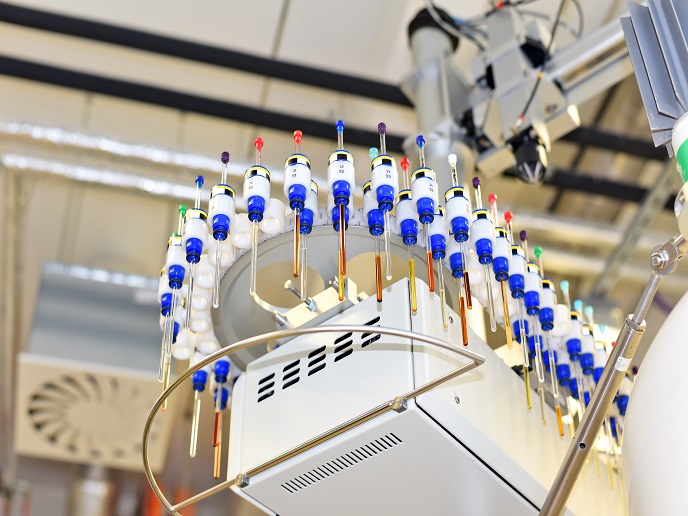Supporting Czech research into biomolecular interaction
The National Centre for Biomolecular Research (NCBR) in the Czech Republic has become one of the leading laboratories for structural biology in central Europe. Currently, the main focus of the institute is the structural characterisation of various macromolecules, and it has received extramural funding from various European and national funding bodies. Partners working on the EU-funded 'Program developing interdisciplinary research potential for the studies of biomolecular interactions' (POSTBIOMIN) project endeavoured to extend the research focus of the NCBR to investigating biomolecular interactions. This materialised through the recruitment of foreign experts and the organisation of international PhD courses and lectures, and therefore also contributed to training for employment in modern research institutions and companies. Further support measures by POSTBIOMIN included the co-financing of investments in research capacity with the EU CEITEC project of the Central European Institute of Technology (CEITEC). Project activities were to strengthen the Centre's regional and European networking capacity in the field of life sciences and aid the formation of strategic partnerships with other research teams. POSTBIOMIN concentrated on research involving the repair of damaged DNA, and especially on determining the molecular details of homologous recombination and repair of double-strand breaks (DSBs). DNA DSBs are implicated in cancer and result from the failure of endogenous processes, such as replication of a damaged template DNA, as well as exogenous agents, including genotoxic chemicals or ionising radiation. Characterisation of the process of DSB repair was achieved by investigating the functional and physical interactions of various proteins such as Rad54 and Srs2. Particular emphasis was given to the role of the post-translational modifications of proteins through the addition of small ubiquitin-like modifier (SUMO) peptides. Further, NCBR research activities supported by the POSTBIOMIN project included investigation of the RNA quality control process and of the pathogen–host recognition and interactions. Using NMR spectroscopy, scientists were able to unveil the structure of protein–RNA complexes, with special focus on proteins involved in RNA quality control. Given the importance of the multi-protein TRAMP complex, specific mutants were generated to delineate the role of each of the TRAMP components in RNA quality control. The central role of the carbohydrate-binding proteins, lectins, in various physiological processes including inflammatory responses is well recognised. POSTBIOMIN-funded research activities were geared towards understanding how protein–carbohydrate recognition mediates pathogen–host recognition. Dissecting this process would aid the inhibition of pathogen adhesion and the formation of antibiotic-resistant biofilms. Collectively, POSTBIOMIN successfully expanded the research capacity of the NCBR, leading to novel research findings and innovations. Its activities also impacted the research and development (R&D) potential of the Czech Republic, thereby improving research collaborations with the industry and attracting further investments.







